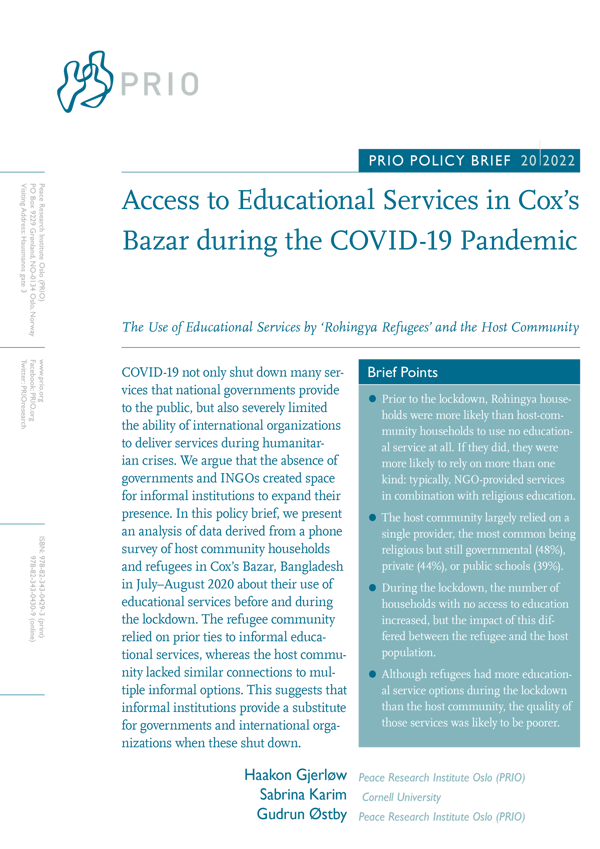COVID-19 not only shut down many services that national governments provide to the public, but also severely limited the ability of international organizations to deliver services during humanitarian crises. We argue that the absence of governments and INGOs created space for informal institutions to expand their presence. In this policy brief, we present an analysis of data derived from a phone survey of host community households and refugees in Cox’s Bazar, Bangladesh in July–August 2020 about their use of educational services before and during the lockdown. The refugee community relied on prior ties to informal educational services, whereas the host community lacked similar connections to multiple informal options. This suggests that informal institutions provide a substitute for governments and international organizations when these shut down.
Gjerløw, Haakon; Sabrina Karim & Gudrun Østby (2022) Access to Educational Services in Cox’s Bazar during the COVID-19 Pandemic: The Use of Educational Services by ‘Rohingya Refugees’ and the Host Community, PRIO Policy Brief, 20. Oslo: PRIO.









